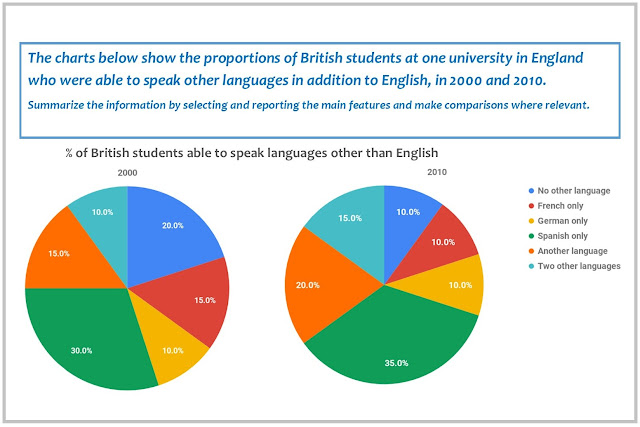C2 Proficiency: a perfect report (!) on a comedy programme
Sometimes, very rarely, but sometimes when I read students' exam answers, I achieve the state "I don't have any questions or comments." I want to share an example of a C2 Proficiency Writing Task 2 answer that I like so much I don't know what to correct or comment on. The answer is written by my student, the amazing Anastasia Glebova.
What is particularly worthy of admiration is that this is an answer to a very tricky prompt:
"An international leisure magazine is running a series on comedy programmes shown on television around the world. It has asked readers to send in reports on comedy programmes in their countries. You decide to send in a report on a television comedy programme from your country in which you briefly describe the programme. You should also explain what it is about the characters in the programme that makes the comedy appeal to many people in your country." (Source: Proficiency 1)
So it's about a comedy program, yet it's not a review! It's a valid report, which Anastasia did an amazing job at.
✽✽✽
Report on a popular Russian comedy programme "Inside Lapenko"
Introduction
This report is intended to provide an overview of a contemporary Russian television comedy programme ‘Inside Lapenko’ and explain the reasoning behind its popularity.
Programme overview
Despite the abundance of exported* comedy and entertainment programmes, locally made products are of high appeal to modern Russian audiences, occupying as much as 65% of airtime. Currently one of the most watched Russian comedy shows with around 20 million viewers, ‘Inside Lapenko’ is a prime example of modern Russian TV production, best defined as a parody show consisting of a series of humorous sketches. It is styled in the fashion of late Soviet films of 80s and early 90s with conspicuously low-budget movie properties and absence of any special effects. The hallmark of the show, however, is ingenious improvisation of the only actor, Anton Lapenko, who plays all the multiple characters, and hence the name of the programme.
Characters and the reasons for their appeal
According to a poll conducted by one of the major Russian film aggregator platforms, among the most loved characters are a nameless self-doubting engineer, an eccentric journalist producing the TV show The Mystery of the Pit, and a dipsomaniac steamroller driver Igor Katamaranov. The sentimental and meek engineer is a reference to similar characters in Soviet films and therefore may arouse sympathy and the feeling of nostalgia with the older audience; meanwhile, the other two characters are portrayed in a clearly caricature style and seem to capture the younger viewership. It is worth noting that Russian audiences generally appear tolerant to stereotyping and even prone to self-mockery inasmuch as these humorous portrayals are produced by their own compatriots.
Conclusion
It is clear that the popularity of this show in Russia and former Soviet republics is induced not by the unique acting talent of Anton Lapenko exclusively, but also by the whole gamut of emotions and socio-historical references which his distinguishable characters call forth. Despite the need for some background knowledge required from the viewer, there are significant implications for the programme’s possible popularity worldwide due to the high standard of acting involved.
Word count: 345 words
✽✽✽
Did you achieve the same state as I did, that of "no questions or comments"?
* Correction notice
This word should be "imported" and the sentence should read as follows: "Despite the abundance of imported comedy and entertainment programmes, locally made products are of high appeal to modern Russian audiences, occupying as much as 65% of airtime." The mistake was kindly pointed out by a subscriber.





Comments
Post a Comment